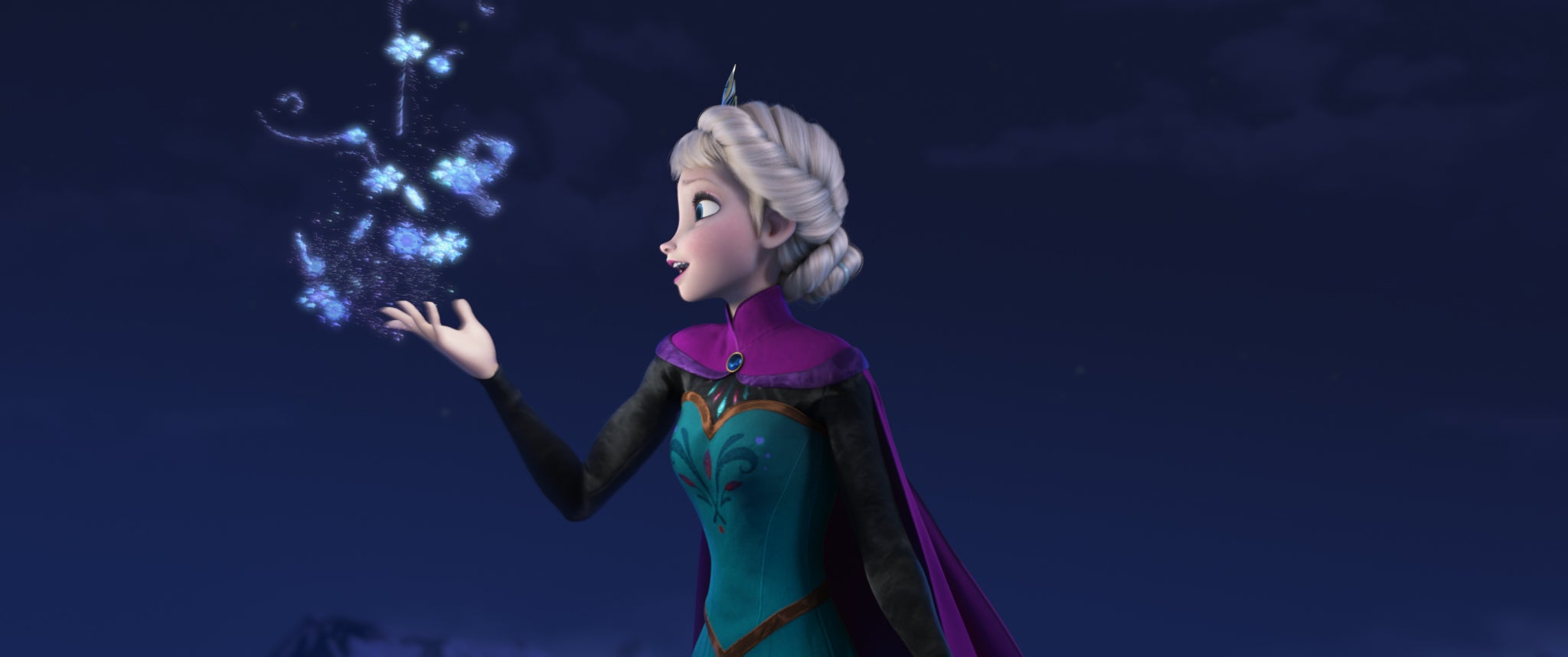- Culture
- Film
- Features
The three leads of ‘Frozen’ are reportedly set to be paid $60m each for two new sequels, in a deal described as one of the ‘highest in animation history’. It’s an encouraging development at a time when voice actors are being regarded as increasingly disposable, writes Louis Chilton
Friday 21 November 2025 10:07 GMTComments
 CloseFrozen 2 - Trailer 4
CloseFrozen 2 - Trailer 4
Get the latest entertainment news, reviews and star-studded interviews with our Independent Culture email
Get the latest entertainment news with our free Culture newsletter
Get the latest entertainment news with our free Culture newsletter
 Email*SIGN UP
Email*SIGN UPI would like to be emailed about offers, events and updates from The Independent. Read our Privacy notice
There’s a chill in the air – and the sharp scent of money. It was reported this week that the three stars of the Disney animations Frozen and Frozen 2 – Kristin Bell, Idina Menzel and Josh Gad – are being paid $60m apiece to return for two more sequels. The Wrap, breaking the news, describes it as a “landmark deal that’s among the highest in animation history”.
In the scheme of things, of course, we’re talking chump change: the first two Frozen films earned Disney nearly $3bn in box office takings alone, with merchandise sales of more than $10bn. And rehiring these actors is the safe choice too, an effort by Disney to re-create the original lucrative formula as faithfully as possible, to avoid removing any pillar of Frozen’s success that may have been load-bearing. But it’s nonetheless a significant development for the world of voice-acting – a sphere of the entertainment industry that’s facing a particular set of threats, after three tumultuous decades of transformation.
It’s by no means unheard of for actors to land paydays like this, though the $60m figure (unconfirmed by Disney) would put Bell and co on a par with some of the biggest per-project earners in film history – such as Robert Downey Jr throughout the later stages of his Marvel run. But for voice performances the money is remarkable. Far more so than live-action performers, voice actors are often seen as fungible. We’ve seen it in the world of television: series such as Family Guy and The Simpsons have recast major and minor roles in recent years. (Rick and Morty even replaced its two leads with soundalikes after actor-creator Justin Roiland was embroiled in scandal). Historically, it’s something that has happened in films too: Disney would routinely recast major roles when producing (usually straight-to-video) sequels to big theatrical releases.
The practice still continues to this day: for 2024’s Inside Out 2, roles that Bill Hader and Mindy Kaling performed in the original were recast with Tony Hale and Liza Lapira. It was reportedly a financial decision, with the original duo proving too expensive. The change attracted criticism at the time, but seemed to have no bearing on the sequel’s commercial prospects: Inside Out 2 made almost $1.7bn, making it the biggest film of the year and the biggest animated film of all time (at the time). This is hardly surprising: the children who comprise the bulk of Pixar’s audience won’t know who Bill Hader or Mindy Kaling are; it would take a particularly astute child’s ear to even notice the change in tone.
Added to this is the encroaching threat of AI. The technology used to generate AI voices is not currently at a point where any credible studio would choose it for a major film, but it’s not a million miles off: already, in smaller corners of the voice acting world, and in the video game sphere, we have seen instances of AI being used as a cheap alternative to human voice performers. Even in recent years, there has been an understanding among producers that some voice performances are irreplaceable – there’s a reason most of the cast of The Simpsons have commanded such tremendous salaries for decades now – but the outlook has never been so tenuous as today.
While the Frozen news is ostensibly a win for actors – for the voice acting industry as a whole – there are ways in which Frozen is still part of the problem. None of Bell, Menzel or Gad are voice actors primarily by trade: Bell comes from TV and live-action film, while Menzel and Gadd got their breaks on Broadway, and are regular fixtures in live-action film and television. Historically, voice acting was a distinct and specialised craft – one that lacked the glamour or fame of on-screen acting. Even titans such as Mel Blanc or Frank Welker never reached the level of ubiquitous name recognition among the public that their work really merited. It was its own particular skill, and had its own particular maestros.
 Ice queen scoop: A new report claimed the stars of ‘Frozen’ will take home $60m each for the new sequels (Disney)
Ice queen scoop: A new report claimed the stars of ‘Frozen’ will take home $60m each for the new sequels (Disney)In the past 30 years, spurred on by the success of Disney’s Robin Williams-starring Aladdin, both film and TV animation have pivoted to a model wherein pre-existingly famous screen actors are awarded the plum voice roles. And the requirements of voice acting have changed accordingly: it’s no stretch to say that the shift has brought about a narrowing of the requirements. Celebrity voice actors often just sound like themselves, and characters have grown less expressive, less colourful, to accommodate this. For anyone trying to break into the industry as a voice actor first and foremost, the opportunities are scant.
If the Frozen news teaches us anything, it’s that there’s still value in a voice, and studios still have the good sense to recognise that value. But I fear going forward, the forecast is only going to get colder.
More about
FrozenDisneyJoin our commenting forum
Join thought-provoking conversations, follow other Independent readers and see their replies
Comments



.png?width=1200&auto=webp&trim=0%2C115%2C0%2C85)